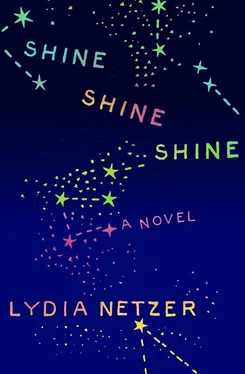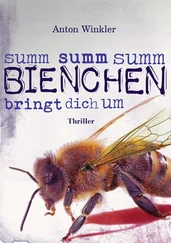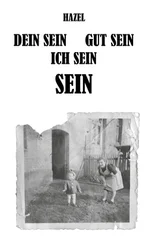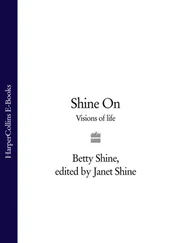Sunny never did any sports in middle school or high school, but she did watch the track team practice, dutifully, most every day. She had a crush on one of the boys. There were kids coming over, like they always did, waiting for their mothers to pick them up, or skipping out on play practice, or pep band or whatever. But now they would sit there near to Sunny, where she was perched up on the bleachers, watching the distance runners loping around. They looked expectantly at her, but she didn’t have much to say on the matter. Around the middle of the week, someone said, “Well, are you going to tell us pretty soon?” And Sunny said, abruptly, that this would be the day she would tell. She slammed her math notebook shut and put it aside, chewed her pencil absently, then threw it over her shoulder.
“My father died,” she said, “on a plateau. He was high up in Tibet.” The warm breeze blew across the green valley, up from the river. The track was nestled in a little dell, down behind the school. In this land of rolling hills, there was hardly an acre of level ground in the entire county, making swimming pools almost an impossibility. The children around her turned their faces toward her, their skeletons obscured by the shape of their hair. A couple were wearing hats, too. Their butts made the wooden bleachers creak, the chipped green paint getting into the seams of their jeans. “That’s near China,” she added. “Outside.” One of the kids nodded. One of the kids looked at another kid and quietly muttered, “No, it’s not.” The track kids pounded past, another lap of the asphalt counted. Sunny cleared her throat.
“It was winter in Tibet,” she went on, “and the Communists had guns.” Now the kids sat up a bit more and paid attention. Sunny clasped her hands together and turned them inside out, stretching out her elbows. She yawned.
“How many Communists were there?” asked one girl.
“Three,” said Sunny. “There were three Communists, in brown military uniforms. The uniforms of the Chinese Liberation Army of the People’s Democracy. They were supposed to be exterminating all the missionaries, even the ones who had families to support. My father had left us to escape the Communists. He had been hiding in a Buddhist monastery, but when the Communists came to the monastery, they found him there. He was in a dark room, between two clay jars of water. Probably praying or something. They came into the room, and tipped the jars over one by one onto the floor. The clay lids were breaking, water spilling everywhere, all over the place. My father stood up, in the middle of all this breaking pottery and monastery stuff, and said, ‘I’m here.’ And they dragged him out, up the mountain and onto a high flat rock. There were monks, um, dying all around. Getting bayoneted.”
“But what did he do?” asked a boy in red shorts. “Why was he in trouble?”
“For not being a Communist, obviously,” said Sunny kindly, and the other kids looked at this red-shorts kid like he was a complete idiot.
“So they dragged him up there on this high rock, one on each side and one marching behind. That was uncomfortable. And they threw him down on a flat place on the ground. ‘Do you believe in communism?’ they said to him. ‘No,’ said my father. ‘I will never believe in communism!’”
Sunny’s voice echoed across the track. She put up a bony fist and shook it. “They kicked him in the stomach, and began to walk around him in a circle, kicking him. ‘Do you believe in communism?’ they kept saying, but he would always say ‘No!’ and then they would kick him again. Their boots were dry and hard, and they had short legs. But there was no dust around, there’s no dust in Tibet because there is no dirt, only rock. These soldiers, their faces were flat and Chinesey, but really tough and mean. Finally they turned toward him, pointing all their guns right at his head, and they pulled him up so he was kneeling on the rock, and then they shot him. Dead.”
“Holy crap,” said one boy, impressed. A horn honked in the parking lot, as somebody’s mother had arrived. The track team had separated out now, a long trail dripping back from the lead group. At the front of the pack, Sunny watched a long, lean boy with a shaved head run mechanically past. Others followed, breathing hard, marking out another mile.
“In Tibet you can’t bury people,” Sunny went on. “You can’t dig; the rock is too hard. So they chopped him up into pieces with these big steel machetes, and left him there, for the vultures. They didn’t talk while they were doing it, they just kind of chop, chop, chopped. The rock turned all bloody with his blood, making red pools here and there on the rock. And then they went off down the mountain. After the vultures had eaten him, his bones dried, and eventually they blew off that rock, and became just part of the gravel. White bones.”
“How could you even know that,” said the cynic in red shorts.
“Shut up, man!” said the kid next to him, and pushed him off the bleachers.
“Sunny, that’s horrible,” said the girl with the curly ponytail. “You must feel so bad.”
Sunny nodded and watched the runners. She laced her fingers over the scarf behind her neck. Her eyes were wet.
* * *
SUNNY TOLD THE STORY again in college. She wrote a poem about it for an elective poetry workshop she was taking. In this version of the story, her father hung from his heels from a bar on a wall in a Burmese prison.
Only his shoulders and head rested on the ground. He hung there until he died, and only her mother was able to approach him, and then only from the other side of iron bars. The cell was dark and moldy. The prisoner wore no clothes. The agony, she wrote in her poem, was only increased by mosquitoes. The filth, she informed her readers, was only relieved by death. For crimes against the government, for subversive activity, for endangering the republic, and for Christianity, her father was hung up to rot.
Her mother walked all the way from Mandalay to Rangoon, heavy in pregnancy, and delivered her baby in the dark, in a thicket behind the ruined palace. She tucked the baby into her own lungi, cleaned herself up, and that very night she went to visit her husband. She was shown to his cell, where he was kept alone at the end of a long low building. In the doorway, she called to him. She pushed the baby in between the bars, to show the father what he had made. A crow sat silently in the window. A snake slipped down the wall. The baby cried and writhed there in the dark, and the father turned his tortured head and cracked his lips into a smile, seeing her. That baby, said Sunny while the class was discussing her work, was me. That baby was me. She left out the eclipse in this version of her story. She thought it would sound too unrealistic.
The poem was published in the college’s literary magazine, the student editors invited Sunny to read it in a little chapel on campus. At the end of her reading of the poem, there was silence in the chapel, and then applause.
* * *
WHEN SUNNY AND MAXON moved to Virginia, Sunny threw a housewarming party for herself. She invited everyone on their street, and everyone came. She had enough martini glasses for everyone. The house was perfect, like a spread in Architectural Digest . Pistachio cream rugs, a wide walnut plank floor, brushed-nickel cups for the recessed lights, and a golden ficus, glossy curved leaves like a money tree in the corner. Everything was new, down to the distressed-leather buster chair and ottoman, but it looked a hundred years old, like a house in which life-altering decisions had been made, a house that had been left and returned to, from faraway travels. A house in which treaties had been signed. A genuine house.
Читать дальше









